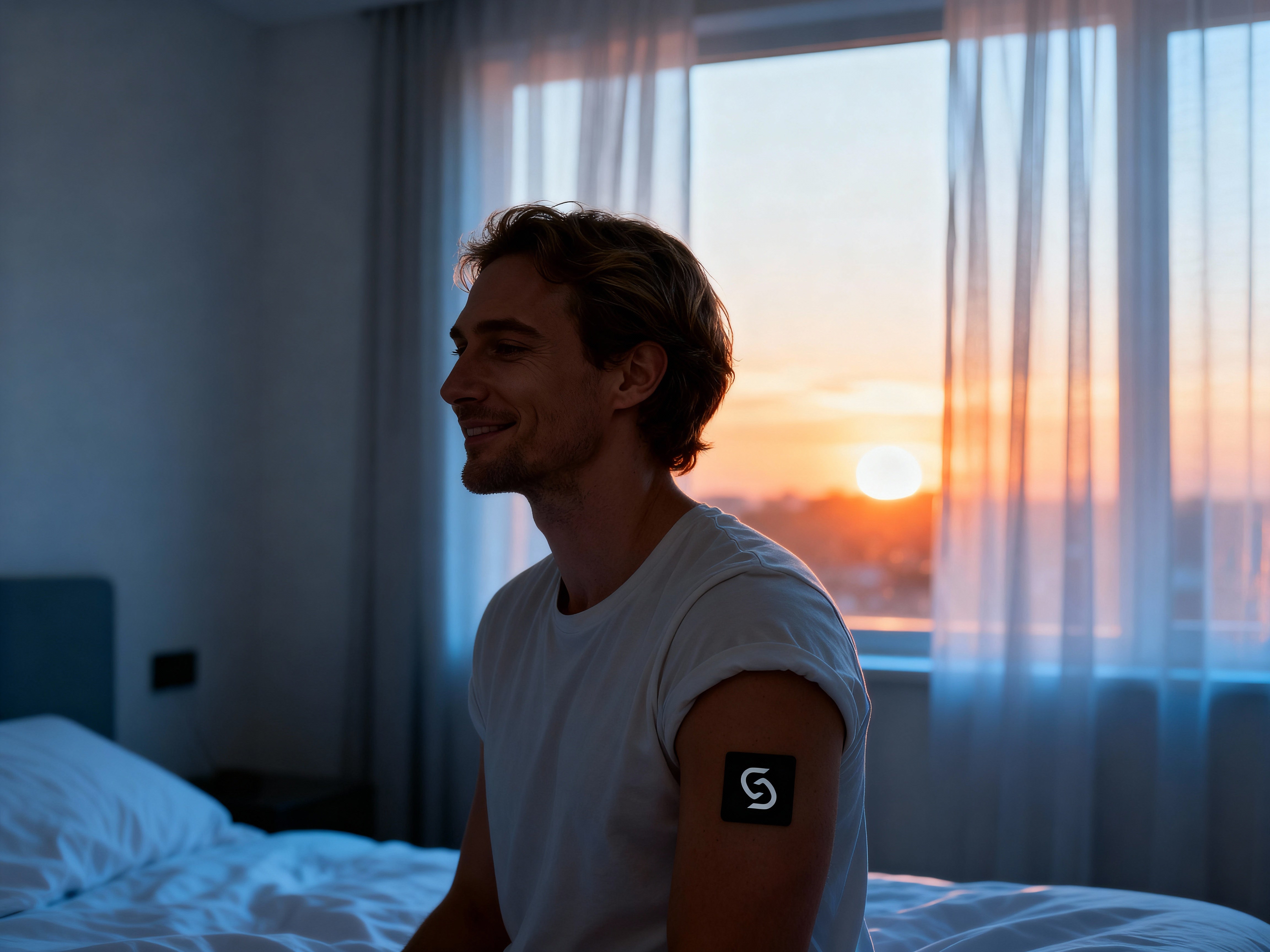Why patches feel different from pills
1) Bypassing the gut and liver
Oral supplements must survive the stomach, enzymes, bile, and the first-pass filter of the liver. Depending on the molecule, you can lose a large chunk of the dose before it ever reaches the brain. Patches skip that bottleneck, so you can use leaner doses yet get a more predictable effect.
2) Micro-diffusion = a smoother curve
A patch behaves like a tiny reservoir that releases actives across the skin at a relatively stable rate. Instead of a sharp oral peak followed by a trough, you get a gentle rise, steady plateau, then taper. Translation: less jitter, fewer crashes, a calmer baseline by day, and more stable sleep architecture at night.
3) Comfort & adherence
No pills to swallow, no sugar, and fewer GI complaints. That reduces “friction,” which is what actually keeps routines alive past week one.
What micro-diffusion looks like in real life
-
Focus+ (AM): onset ~15–30 min; steady 6–8 h. Feels like clean alertness and sustained task engagement with fewer jitters.
-
Calm+ (Anytime): onset ~20–40 min; 6–8 h. Feels like softer edges and clearer thinking under pressure—composed, not sedated.
-
Sleep+ (PM): onset ~30–45 min; 8–10 h. Feels like quicker sleep onset, deeper, more stable nights, clearer wake-up.
(Timings are typical user-reported ranges; tune wear time days 1–3.)
The neuro-basics (short & friendly)
-
Arousal systems (locus coeruleus noradrenaline; cortical networks) prefer stable inputs. Jerky pharmacokinetic curves can nudge jitters and rebound fatigue.
-
Sleep systems (VLPO GABAergic neurons, circadian/pineal melatonin) benefit when onset cues are consistent and nighttime stimulation is low. Smooth delivery helps the brain downshift without overshoot.
Patch vs pill: quick comparison
| Dimension | Patches (micro-diffusion) | Pills |
|---|---|---|
| Onset profile | Gradual rise → steady plateau | Fast peak → decline |
| GI tolerance | High (bypasses gut) | Variable (reflux, nausea for some) |
| Dose efficiency | Often leaner dose needed | Higher dose to overcome first-pass |
| Habit friction | Low (peel, stick, done) | Carry water, time around meals |
| Crash risk | Lower | Higher with stimulatory peaks |
Placement & wear time (works for Focus+, Calm+, Sleep+)
Best sites: upper deltoid, shoulder blade/upper back, hip/side of torso, outer upper arm.
How to: clean, dry skin → peel → stick → press 10–15 s.
Rotate sites daily.
Tune window (Days 1–3): Start shorter. If you’re caffeine-sensitive, wear Focus+ on the lower end of the 6–8 h window; if you’re a night owl, schedule Sleep+ a bit earlier (30–60 min pre-bed).
Water note: patches are sweat-resistant (workouts OK) but not waterproof—avoid showers, baths, or swimming while wearing.
Who benefits most
-
Students, founders, creators needing reliable focus without edge.
-
Busy professionals who want calm under pressure (presentations, travel days, back-to-back calls).
-
Anyone chasing faster sleep onset and a clearer morning.
Safety & sensible use
-
Educational info only; not medical advice.
-
If pregnant, nursing, on medication, or with a medical condition, talk to your healthcare professional.
-
Remove patch after the recommended wear time; rotate skin sites.
FAQs
Do patches work if I have a “tough stomach”?
Yes—because they bypass digestion, many users report fewer GI issues than with pills.
Can I work out with a patch on?
Yes, sweat-resistant is fine. Avoid saunas or swimming; patches aren’t waterproof.
How quickly will I feel something?
Typical onsets: Focus+ 15–30 min; Calm+ 20–40 min; Sleep+ 30–45 min.
What if I feel too much/too little?
Adjust wear time and placement days 1–3. Shorter wear = softer effect; longer wear = fuller effect.


Leave a comment
All comments are moderated before being published.
This site is protected by hCaptcha and the hCaptcha Privacy Policy and Terms of Service apply.